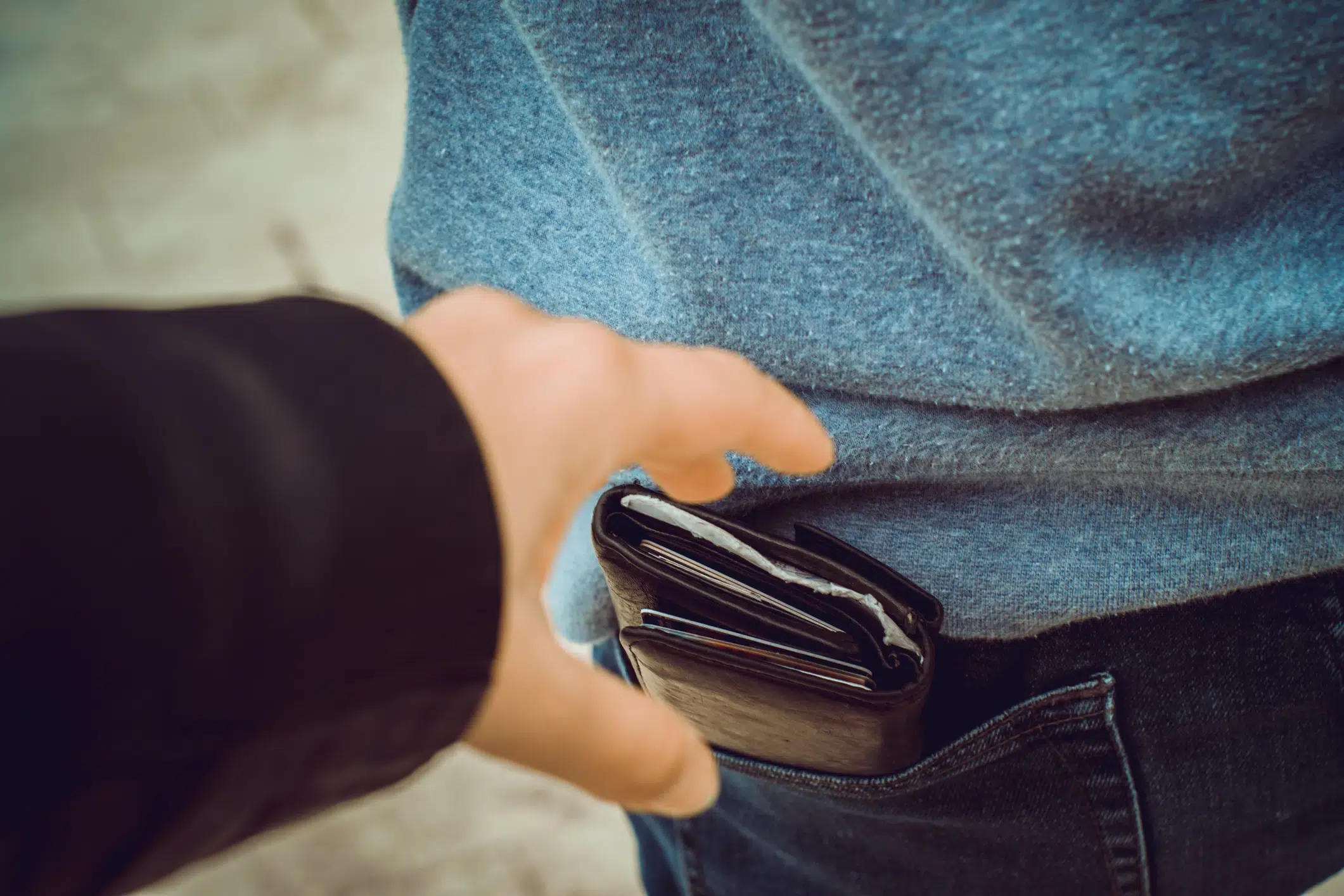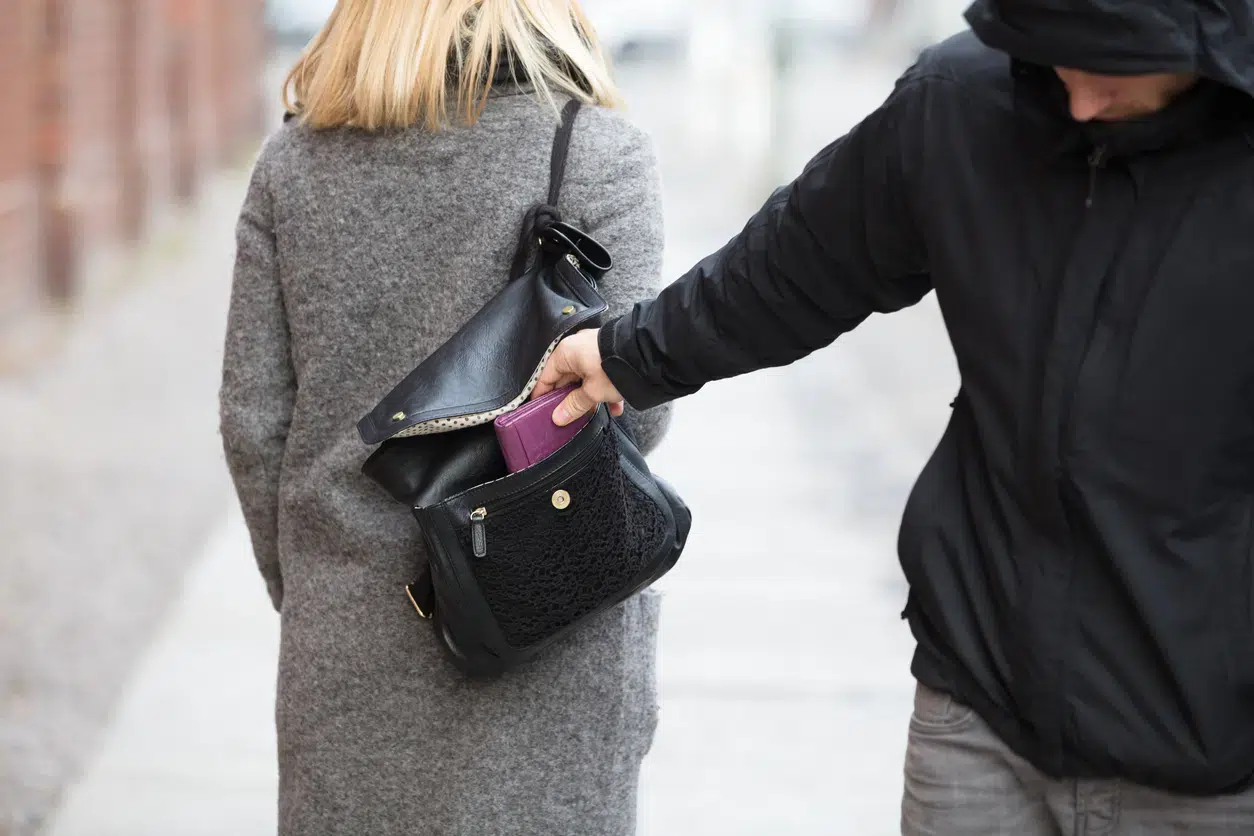What Makes a Grand Larceny Lawyer in Virginia Essential?
A skilled grand larceny lawyer in Virginia is essential due to the serious nature of the charge and its potential consequences. Grand larceny, defined under Virginia Code 18.2-95, is a felony involving theft of property valued at $1,000 or more, property worth $5 or more taken directly from a person, or any firearm, regardless of value.
A grand larceny conviction may result in a prison sentence of up to 20 years and a fine of up to $2,500. Additionally, you risk a permanent criminal record that will affect your employment, housing, voting rights, and community reputation. The severe consequences of a grand larceny conviction make it essential to retain a skilled attorney as soon as possible.
Experienced criminal defense counsel is essential to obtain the best outcome in your case. Attorney Scott Nolan is a skilled grand larceny defense lawyer who has successfully defended thousands of clients against all types of theft crime charges. He understands Virginia law related to larceny and theft crimes, and will fight to mitigate the consequences of your larceny charges.

Understanding Grand Larceny Laws in Virginia
Grand larceny in Virginia is a serious felony offense defined under Virginia Code involving the unlawful taking of property with specific value thresholds or characteristics. Specifically, it applies to theft of property valued at $1,000 or more, property worth $5 or more taken directly from a person (such as in pickpocketing), or any firearm regardless of its value.
Unlike petit larceny, a misdemeanor for theft under $1,000, grand larceny carries more severe penalties, including up to 20 years in prison, fines of up to $2,500, and a permanent felony record. The prosecution must prove that the accused took and carried away property belonging to another with the intent to deprive the owner permanently, without their consent. This makes understanding the nuances of the law critical, as even minor details, such as the exact value of stolen goods, can significantly impact the case outcome.

Potential Penalties and Long-Term Consequences for Larceny Charges
In Virginia, grand larceny is classified as a felony under Virginia Code 18.2-95, carrying significant penalties upon conviction. The offense involves the theft of property valued at $1,000 or more, property worth $5 or more taken directly from a person, or the possession of any firearm, regardless of value.
A conviction for grand larceny can result in up to 20 years in prison. However, sentences typically range from one to 5 years for first-time offenders, depending on the severity of the case and the defendant’s criminal history. Additionally, courts may impose fines up to $2,500.
Probation or suspended sentences are possible for larceny charges, but these often come with strict conditions such as restitution to the victim, community service, or mandatory counseling. For first-time offenders, Virginia Code 19.2-303.2 may permit deferred adjudication, potentially leading to dismissal after completion of probation, but this requires the assistance of a skilled defense attorney like Scott Nolan.
Beyond immediate penalties, a conviction for grand larceny in Virginia carries lasting consequences that can profoundly impact a person’s life. A felony record is permanent unless expunged, which is rare in Virginia for felony convictions. This record can severely limit employment opportunities, as many employers conduct background checks and hesitate to hire individuals with felony convictions, particularly for roles involving trust or financial responsibility.
Housing applications, especially for rentals or public housing, may be denied due to a felony record for grand larceny. Additionally, a conviction results in the loss of certain civil rights, such as the right to vote, serve on a jury, or possess a firearm, though voting rights may be restored through a separate process. Professional licenses, security clearances, and educational opportunities, including financial aid eligibility, may also be jeopardized, affecting your career and personal growth.
Defense Strategies for Grand Larceny Charges
One primary defense strategy is challenging the prosecution’s evidence regarding the value of the stolen property for grand larceny charges. For grand larceny, the Commonwealth must prove the property’s fair market value exceeds $1,000 at the time of the theft. A skilled grand larceny defense attorney may argue that the prosecution’s valuation is inflated or unsupported, potentially by presenting expert testimony or evidence of depreciation. Skilled defense attorney Scott Nolan may introduce evidence to prove that the prosecution’s property valuation is flawed.
For instance, if the stolen item is used electronics or a vehicle, the defense might introduce market data showing a lower value, which could reduce the charge to petit larceny, a misdemeanor with lighter penalties.
Lack of Intent
Another effective defense is disputing the intent to permanently deprive the owner of their property, a critical element of larceny. The defense may argue that the defendant believed they had a lawful claim to the property, such as in cases involving borrowed items or disputed ownership. For example, if the accused took an item under the mistaken belief it was theirs, this lack of intent can undermine the prosecution’s case. Alternatively, the defense might show the taking was temporary, not intended to be permanent, which could lead to a lesser charge or acquittal.
A lawyer may also explore procedural defenses, such as violations of the defendant’s rights during the investigation or arrest. If evidence was obtained through an unlawful search or seizure, contravening the Fourth Amendment, a defense attorney can file a motion to suppress that evidence, potentially weakening or dismantling the prosecution’s case. Additionally, challenging witness credibility or inconsistencies in statements from the alleged victim can create reasonable doubt, especially in cases that rely heavily on testimony rather than physical evidence.
Skilled grand larceny defense attorney Scott Nolan may challenge illegal searches and procedural errors that could lead to the suppression of evidence and a possible case dismissal.
How an Experienced Grand Larceny Lawyer Can Help
An experienced grand larceny defense attorney like Scott Nolan will engage in several actions that will benefit your case:
Challenge the Case Against You
An experienced grand larceny lawyer meticulously analyzes the prosecution’s evidence to identify weaknesses. The state must prove intent to deprive, the value of the stolen property, and a lack of consent.
Skillful grand larceny defense attorney Scott Nolan can challenge these elements by questioning the property’s valuation, presenting evidence of a good-faith belief in ownership, or arguing that the taking was not intentional. For instance, if the value of the stolen item is disputed, your lawyer may introduce expert testimony or market data to reduce the charge to petit larceny, a misdemeanor with significantly lighter penalties.
Navigating Plea Deals and First-Time Offender Programs
Virginia offers options like first-time offender programs, which can lead to charge dismissal after probation for those without prior convictions. An experienced lawyer like Scott Nolan knows how to negotiate with prosecutors to secure such programs or plea deals that reduce a grand larceny charge to a misdemeanor.
Attorney Nolan’s familiarity with local courts, such as those in Fairfax, Arlington, or Richmond, allows him to tailor strategies based on prosecutors’ tendencies and judges’ preferences, increasing the likelihood of a favorable plea or alternative sentencing.
Minimizing Long-Term Consequences
Beyond immediate penalties, a conviction for grand larceny carries long-term consequences, including difficulties in securing employment, housing, professional licenses, or security clearances. Scott Nolan will work to avoid a felony conviction in your stolen property case by exploring defenses, negotiating dismissals, or securing acquittals. He may also advise on expungement options if applicable, helping to clear your record and protect your future opportunities. His strategic approach ensures that both immediate and long-term impacts are minimized.
Providing Local Expertise and Personalized Defense
An experienced Virginia lawyer like Scott Nolan brings invaluable knowledge of local court systems and legal nuances. Attorney Nolan understands the aggressive prosecution of theft crimes in jurisdictions such as Alexandria and Virginia Beach, and can craft defenses tailored to local practices. Whether through pre-trial motions, evidence suppression, or courtroom advocacy, Attorney Nolan’s skill and experience ensures your rights are protected at every stage.
Choosing the Right Lawyer for Your Virginia Grand Larceny Case
Selecting the right lawyer for a grand larceny case in Virginia is a critical decision that can significantly impact the outcome of your case. Critical attributes to consider when retaining a skilled grand larceny offenses attorney are:
Experience in Virginia Criminal Law
Look for a lawyer with extensive experience handling grand larceny cases specifically in Virginia. Familiarity with Virginia’s theft laws, local court procedures, and prosecutors in jurisdictions like Fairfax, Arlington, or Richmond is vital. An experienced attorney will know how to challenge evidence, such as the valuation of stolen property or the intent to deprive permanently, and can leverage local relationships to negotiate favorable outcomes, such as reduced charges or alternative sentencing.
Track Record of Success
Evaluate the lawyer’s history of success in defending grand larceny cases. Ask about their experience with dismissals, acquittals, or securing lesser charges like petit larceny. Attorney Scott Nolan has an impressive list of case results in theft and larceny cases in Virginia. His strong success record shows his ability to craft effective defense strategies tailored to Virginia’s legal landscape.
Personalized Attention and Communication
Select a lawyer who offers personalized attention and clear communication. Grand larceny cases often involve complex details, such as disputing property values or negotiating first-time offender programs under state law. Having a responsive attorney who clearly explains legal options and keeps you informed throughout the process will help reduce stress and ensure you understand the progress of your case.
Attorney Scott Nolan has an excellent reputation as a clear communicator who can explain complex legal concepts to non-attorneys. He is also available to his clients regularly to address their questions and concerns.
Resources and Accessibility
Ensure that your stolen property defense lawyer has the resources to thoroughly investigate your case, including access to expert witnesses or forensic accountants to dispute property valuations. Additionally, confirm they offer free consultations, as many Virginia firms do, allowing you to assess their approach without upfront costs. Accessibility to the lawyer, whether through in-person meetings in areas like Fairfax or virtual consultations, ensures you can discuss your case conveniently and promptly.
By prioritizing experience, a proven track record, clear communication, and adequate resources, you can select a grand or petit larceny lawyer who will effectively defend your rights and work toward the best possible outcome in your Virginia grand larceny case.
Attorney Scott Nolan is available today for a free consultation about your criminal charges case and looks forward to speaking with you.
Frequently Asked Questions
Grand larceny in Virginia generally involves theft of property valued above a certain threshold, which can vary depending on the circumstances. A Fairfax Grand Larceny Lawyer can clarify specific state and local guidelines.
The main difference is the value of the stolen property. Grand larceny involves higher-value property, while petit larceny covers lower-value items. Penalties are more severe for grand larceny.
Penalties may include significant fines, jail or prison time, probation, and restitution. The severity depends on the value of the stolen property and prior criminal history.
Defenses may include challenging evidence, proving lack of intent, mistaken identity, or showing the property was not unlawfully taken. A skilled lawyer can evaluate your case and create a strong defense strategy.
In Virginia, you can be convicted of grand larceny for stealing something worth $1000 or more. However, you can also be convicted of grand larceny for stealing something worth only $5 or more if you steal it “from the person of another”, meaning taking it from them directly. You can also be convicted of grand larceny if you steal any firearm, regardless of the firearm’s value. Exact details may vary, so consulting a Fairfax attorney is important.
It depends on the circumstances of your case, prior record, and defense strategy. Sometimes, alternatives like plea agreements, probation, or diversion programs may be available.
Yes. A conviction is part of your criminal record and can impact employment, housing, and other areas. Legal guidance can help explore options for record expungement.
Expungement may be possible under certain conditions, especially if charges were dismissed or you were acquitted. A lawyer can assess eligibility and guide the process.
Yes. Grand larceny is a serious felony, and legal representation is crucial to protect your rights, challenge evidence, and achieve the best possible outcome.
Grand larceny is a felony. When you are convicted of a felony, you are labeled as a felon for life. You lose the right to vote. You lose the right to possess a firearm. A felony conviction can affect employment opportunities, professional licenses, and personal reputation. Effective legal defense is essential to minimize long-term consequences.
Prosecutors may rely on surveillance footage, eyewitness testimony, fingerprints, stolen property, and other documentation. A lawyer can challenge the admissibility and reliability of evidence.
In some cases, charges may be negotiated down to petit larceny or another lesser offense, potentially reducing penalties. Skilled negotiation with prosecutors is key.
Legal deadlines vary, but prompt action is critical. Contacting a Fairfax Grand Larceny Lawyer immediately ensures your rights are protected and deadlines are met.
Restitution involves repaying the victim for stolen property or damages. Courts may order restitution in addition to fines or incarceration.
Scott Nolan has experience defending clients against grand larceny charges, negotiating plea deals, challenging evidence, and seeking reduced sentences or dismissals to protect your future.


